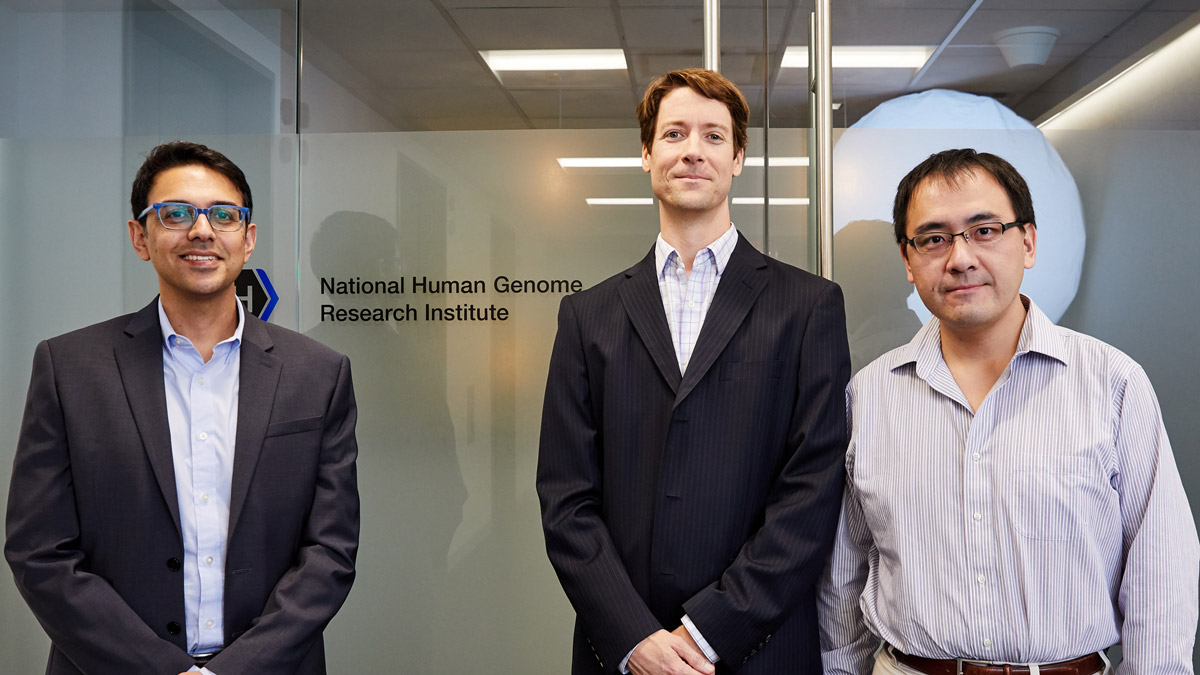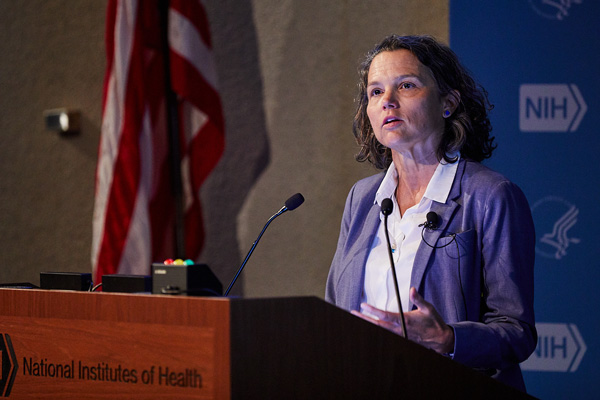Presidential Early Career Awards for Scientists and Engineers Given to NHGRI-Funded Researchers
As part of the Congressional Biomedical Research Caucus Briefings, I recently had the opportunity to highlight the progress in genomics over the last three decades – from the early years of the Human Genome Project to today’s efforts in tailoring medical care based on patients’ genomic information. The briefings are organized by the Coalition for the Life Sciences (CLS), an alliance of professional organizations working together to foster public policies that advance basic biological research and its applications in medicine and other fields. The briefings also provide a forum where members of Congress and congressional staff can interact directly with researchers responsible for scientific discoveries.
Genomics is an ever-changing field that is increasingly relevant to peoples’ lives. NHGRI strives to be at the forefront of efforts to engage and educate the public about genomics. Towards that end, we recently put together four proposals for panel discussions for the 2020 SXSW Conference in Austin, Texas aimed at increasing public genomic literacy. Community votes comprise 30% of the input for choosing the panels in the conference. Please consider voting for one or more of the NHGRI-submitted panel proposals; specifically, they are entitled:
- National DNA Day: A Science Education Movement
- Creating a Space for Genomics in All Classrooms
- Genomics in a Sea of Societal Issues
- Why Am I Irish Yesterday and Italian Today?
Voting ends Friday, August 23, at 11:59 p.m. Pacific!
All the best,
![]()
2020 Vision for Genomics
- Recent NHGRI ‘Genomics2020’ Strategic Planning events included a Town Hall at Massachusetts General Hospital on July 17.
- Upcoming NHGRI ‘Genomics2020’ Strategic Planning events include: Perspectives in Comparative Genomics & Evolution Workshop on August 15-16 and Genomics in Medicine & Health Strategic Planning Workshop on September 26-27.
- To stay informed about the various strategic planning events, please sign up for email updates and monitor the ‘Genomics2020’ calendar.

Genome: Unlocking Life's Code
The Genome: Unlocking Life's Code exhibition is currently touring North America.
Next: September 12, 2019 – January 2, 2020
Turtle Bay Exploration Park
Redding, CA
After: January 17 – April 12, 2020
Museum of Science & History
Jacksonville, FL

About The Genomics Landscape
A monthly update from the NHGRI Director on activities and accomplishments from the institute and the field of genomics.
For More Information
Last updated: August 8, 2019



